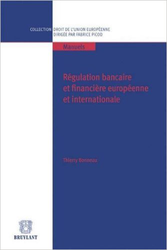Sectors
Links : Europe

https://www.ecb.europa.eu/ecb/html/index.en.html
Switchboard: +49 69 1344 0
Public enquiries: +49 69 1344 1300 / info@ecb.europa.eu
ECB Contacts, here.
Compliance and Regulation Law Glossary

Rating agencies are private companies that assess the risk of defaulting payment by debtors. As such, the rating of a borrower affects the value of the debt security it issued and that is to circulate in the markets. That is why the activity of credit rating agencies is critical to the security of financial instruments and the functioning of financial markets, but also to the whole global credit system. For instance, an AAA rating guarantees security to investors. Rating agencies helps building trust in financial markets and in the banking system. Henceforth, since everyone relies on them as they save people's time from seeking on their own information on securities or on those who issue them on the marks, international rating agencies have become crucial operators.
'Rating' has also become a business, which is now concentrated within the hands of three undertakings (two American and one French). It has often been said that these three are conflicted. Some have indeed brought up the fact as they have provided the markets with unreliable information (especially about subprime and securitization) prevented them to self-discipline, which eventually participated in the global spread of risks and defaults.
The difficult history between the rating agencies, whether they are considered as mere businesses, crucial operators or as companies undertaking a public service, which eventually led to implement a specific Regulation in the immediate aftermath of the financial crisis, shows how the information is a public common. This justifies the intervention of the Financial Regulator, namely to better protect the consumer. Should we go further on? Some have mentioned the idea of nationalizing the business and hand it over to Government institutions (or at least public ones). This is, however, no longer on the agenda, as many conflicts of interests may arise since rating agencies keep on rating the paradoxical debtors that States are.
Thesaurus : Doctrine
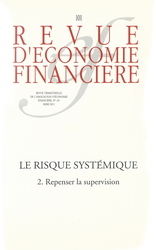
Released in 2011, this special issue focuses on "Supervision" in terms of systemic risk, while the last was on "Regulation" under the same theme.
In order to prevent the next crisis, the will appears to extend the supervision, including on "non-banks", such as insurance companies, and to strengthen it, particularly with regard to the means of control, surveillance and punishment powers of supervisory Authorities.
Complete reference: Revue d'Économie Financière, Le risque systémique - 2. Repenser la supervision, n° 101, mars 2011, Paris, 288 p.
_____
Thesaurus : Doctrine

Complete reference: KOVAR, Jean-Philippe and LASERRE CAPDEVILLE, Jérôme, Droit de la régulation bancaire (Banking regulatory Law) , preface by Christian Noyer, RB Éditions, 333 p.
Read the coverback.
Read the table of contents.
Thesaurus : Doctrine

Complete reference: COURET, Alain and al, Droit financier (Financial law,), Précis Dalloz, 2nd ed, Dalloz, Paris, 2012, 1270 p.
This book is written in French.
Read the coverback.
Read the table of contents.
Links : Switzerland
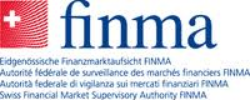
http://www.finma.ch/f/pages/default.aspx
FIMA is a Federal Authority.
It regulates not only financial markets and also insurance companies.
It presents its mission in its website :
"FINMA's mandate is to protect creditors, investors and policy holders and ensure the smooth functioning of the financial markets. Through consistent supervision and predictable regulation, we make an important contribution to safeguarding the stability and good reputation of the Swiss financial centre, and consequently to enhancing its competitiveness."
Links : United Kingdom
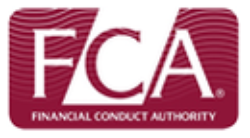
http://www.fca.org.uk/
FCA Head Office
25 The North Colonnade, London E14 5HS, UK
Switchboard: 020 7066 1000
Thesaurus : Texts
Thesaurus : Doctrine

Complete reference: DECOCQ, Georges, GÉRARD, Yves and MOREL-MAROGER, Julienne, Droit bancaire (Banking Law), Collection "Master Banque", 2ième éd., RB édition, Paris 2014, 387 p.
Compliance and Regulation Law Glossary

The concept of 'agency', sometimes confused with the one of 'Regulator', designates a way of deconcentrating the State. Away from a Jacobin outlook, states have indeed gradually devolved their sovereign responsibilities to other institutions, which are often geographically distant from the state's political capital city. These agencies are a form of technical decentralization because they are in charge of operational tasks and specific expertise, e.g., as regards employment, environment or health issues. This model, which is very common in Scandinavian countries, is often associated with federal outlooks, like in the United States. It is still fairly remote to the French model that remains to this day built on the idea of a centralized state. So far, France has only developed a few agencies (e.g., France Trésor, tasked with managing France's government debt and cash positions, or the Regional Health Agencies).
In a different perspective, although the two notions are homonyms, the American financial theory developed the notion of 'agency' to describe the relationship between the corporate officer (the agent) and the shareholder (the principal), who empowers the first to act on his behalf to serve his interest. Information asymmetry and conflict of interest mark this relationship, which explains that this theory helped developing multiple safeguards, conveyed by the Financial Regulation.
June 24, 2019
Breaking news

In what it presents as a set of guidelines designed by a risk-driven approach, the FATF published on 21 June 2019 recommendating to fight the use of crypto-assets and cryptocurrency platforms for launderind money and financing terrorism.
This fight against money laundering is (with the fight against corruption) often presented as the core of the Compliance Law. The FATF takes a large part of it. Even if this new branch of Law aims to crystallize other ambitions, such as the fight against tax fraud or climate change, or even the promotion of diversity or education and the preservation of democratie, the legislation of Compliance Law are mature in the matter of money laundering and the terrorism financing, as they are in the fight against corruption.
The news comes then not from the new legal mechanisms but rather from the new technological tools that could allow the realization of the behaviors against which these obligations of compliance have been inserted in the legal system. It is then to these technologies that the law must adapt. This is the case with crypto-assets and cryptocurrency platforms. Because these are rapidly evolving technologies, with the exercise of written guidelines in 2019 to inform the meaning of the provisions adopted in 2018, the FATF is taking the opportunity to change the definition it provides of crypto-assets and cryptocurrencies. So that a too narrow definition by the texts does not allow the operators to escape the supervision (phenomenon of "hole in the racket" - loophole)..
___
In fact, in October 2018, the FATC (Financial Action Task Force) developed 15 principles applying to these platforms, to allow this intergovernmental organization to carry out its general mission to combat money laundering and the financing of terrorism. These June 2019 recommendations are to interpret them.
In this very important document, where it is expressly stated that it is a matter of fixing the obligations of those who propose crypto-assets and crypto-currencies, the notion of self-regulation is rejected. Il est writter : "Regarding VASP (virtual assets services providers) supervision, the Guidance makes clear that only competent authorities can act as VASP supervisory or monitoring bodies!footnote-119, and not self-regulatory bodies. They should conduct risk-based supervision or monitoring, with adequate powers, including the power to conduct inspections, compel the production of information and impose sanctions. There is a specific focus on the importance of international co-operation between supervisors, given the cross-border nature of VASPs’ activities and provision of services."
On the contrary, it is a matter of elaborating the control obligations that these service providers must exercise over products and their customers (Due Diligences), which must be supervised by public authorities.
In order to exercise this supervision and monitoring, the national authorities themselves must ensure that they work together : "As the Virtual Assets Services Providers (VASP) sector evolves, countries should consider examining the relationship between AML/CF (Anti-Money Laundering and Counter Terrorist Financint) measures for covered VA activities and other regulatory and supervisory measures (e.g., consumer protection, prudential safety and soundness, network IT security, tax, etc.), as the measures taken in other fields may affect the ML/TF risks. In this regard, countries should consider undertaking short- and longer-term policy work to develop comprehensive regulatory and supervisory frameworks for covered VA activities and VASPs (as well as other obliged entities operating in the VA space) as widespread adoption of VAs continues".
After particularly interesting comparative law information on Italy, the Scandinavian countries and the United States, the report concludes: "International Co-operation is Key", because of the global nature of this activity.
Since the issue is not the global Regulation of these platforms and types of products, but only the possible modes of money laundering and terrorist financing to which they may give rise, the FATF recalls that neither crypto-products nor product suppliers are not referred to as such. As the guidance's title recalls, common to the 2018 document adopting the 15 principles and this interpretive document, these are "risk-based" rules. Thus, it is according to the situations that these - products and suppliers - that they may or may not present risks of laundering and financing of terrorism: depending on the type of transaction, the type of client, the type of country, etc. For example, from the moment that the transaction is anonymous, that is impossible to know the "beneficiary", or that it is transnational and instantaneous, which makes it difficult to supervise because of the heterogeneity of national supervisions little articulated between them.
In reports that public supervisors must have with crypto-product suppliers, they must adjust according to the level of risk presented by them, higher or lower: "Adjusting the type of AML/CFT supervision or monitoring: supervisors should employ both offsite and onsite access to all relevant risk and compliance information.However, to the extent permitted by their regime, supervisors can determine the correct mix of offsite and onsite supervision or monitoring of Virtual Assets Services Providers (VASPs). Offsite supervision alone may not be appropriate in higher risk situations. However, where supervisory findings in previous examinations (either offsite or onsite) suggest a low risk for ML/TF, resources can be allocated to focus on higher risk VASPs. In that case, lower risk VASPs could be supervised offsite, for example through transaction analysis and questionnaires".
This "adjustment" required does not prevent a very broad conception of the power of supervision. So, for nothing escapes the recommendations (and in particular the obligations that ensue for the suppliers of these products), the definition of the crypo-assets and crypo-currencies is this one: “Virtual asset” as a digital representation of value that can be digitally traded or transferred and can be used for payment or investment purposes. Virtual assets do not include digital representations of fiat currencies, securities, and other financial assets that are already covered elsewhere in the FATF Recommendations."
And for the same reason of effectiveness is posited the principle of technological neutrality: "Whether a natural or legal person engaged in Virtual Assets (VA) activities is a Virtual Asset Services Provider (VASP) depends on how the person uses the VA and for whose benefit. As emphasized above, ... then they are a VASP, regardless of what technology they use to conduct the covered VA activities. Moreover, they are a VASP, whether they use a decentralized or centralized platform, smart contract, or some other mechanism.".
The interpretative guidelines then formulate the obligations that these platforms have with regard to the supervisors they obey(question of the "jurisdiction", ratione loci ; ratione materiae): " The Guidance explains how these obligations should be fulfilled in a VA context and provides clarifications regarding the specific requirements applicable regarding the USD/EUR 1 000 threshold for virtual assets occasional transactions, above which VASPs must conduct customer due diligence (Recommendation 10); and the obligation to obtain, hold, and transmit required originator and beneficiary information, immediately and securely, when conducting VA transfers (Recommendation 16). As the guidance makes clear, relevant authorities should co-ordinate to ensure this can be done in a way that is compatible with national data protection and privacy rules. ".
These platforms are not uniformly defined due to the diversity of their activities. Because it is their activity that makes them responsible for this or that regulator. For example from the Central Bank or the Financial Regulator: "For example, a number of online platforms that provide a mechanism for trading assets, including VAs offered and sold in ICOs, may meet the definition of an exchange and/or a security-related entity dealing in VAs that are “securities” under various jurisdictions’ national legal frameworks. Other jurisdictions may have a different approach which may include payment tokens. The relevant competent authorities in jurisdictions should therefore strive to apply a functional approach that takes into account the relevant facts and circumstances of the platform, assets, and activity involved, among other factors, in determining whether the entity meets the definition of an “exchange”!footnote-121 or other obliged entity (such as a securities-related entity) under their national legal framework and whether an entity falls within a particular definition. In reaching a determination, countries and competent authorities should consider the activities and functions that the entity in question performs, regardless of the technology associated with the activity or used by the entity".
____
Reading this very important document, it is possible to make 6 observations:
1. Interpretative documents are often more important than rules interpretated themselves. En these guidances, first and foremost, these are major obligations that are stated, not only for platforms but also for national laws, and well beyond the issue of money laundering. So, it is laid: "Countries should designate one or more authorities that have responsibility for licensing and/or registering VASPs. ... at a minimum, VASPs should be required to be licensed or registered in the jurisdiction(s) where they are created. ".This is a general prescription, involving a general regulation of these platform, which registered in a general way, will probably be supervised in a general way.
Secondly, it is a series of binding measures that is required of the National legal systems, for example the possibility of seizing crypto-values.
It shows that the soft Law illustrates the continuum of the texts, and allows their evolution. Here the evolution of the definition of the object itself: the definition of crypto-assets and crypto-currencies is widened, so that the techniques of money laundering and terrorist financing are always countered, without it being necessary to adopt new binding rules. We are beyond mere interpretation. And even more of the principle of restrictive interpretation, classically attached to the Repressive Law ...
2. Fort the effectiveness of the Compliance Law, definition become extremely broad. Thus, to follow the FATF, the definititon off a financial institution is as follows: "“Financial institution” as any natural or legal person who conducts as a business one or more of several specified activities or operations for or on behalf of a customer". This is more the definition of a company in Competition Law!footnote-120....Why ? Because otherwise, an operator finds a status allowing him to escape the category and obligations listed. The principle of efficiency implies it. The principle of "legality", derived from criminal law, has hardly any existence. But this also corresponds to the general evolution of the financial world, in which one no longer stars from the organ (for example to be a"bank") but of activity, but from an activity or a fonction whose metamorphoses are so rapid that it is almost impossible to define them ....
3. In the same way, the definition of crypto-assets or crypto-currencies: "“Virtual asset” as a digital representation of value that can be digitally traded or transferred and can be used for payment or investment purposes. Virtual assets do not include digital representations of fiat currencies, securities, and other financial assets that are already covered elsewhere in the FATF Recommendations". This definition is purely operational because nothing can escape the FATF: all that is financial or monetary, whatever its form or support, its traditional form or a form that will be invented tomorrow, is within its competence and, through a such definition, is under national supervisors. In Compliance Law, and since everything is based on risk analysis, the idea is simple: nothing must escape obligations and supervision.
4. Platform apprehension is done by the criterion of activity, according to the "functional" method. Thus, its supervision, or even its regulation, and its obligations of compliance, will apply, depending on what it does, to the Financial Regulator (if it does ICO) or to others if it only uses tokens as an instrument of exchange. If it makes several uses, then it would fall under several Regulators (criterion ratione materiae).
5. The principle of "technological neutrality" is a classic principle in Telecommunications Law. Here we measure the interference between the principles of Telecommunications Law and Financial Law, which is logical because crypto-financial objects are born of digital technology. This neutrality allows both technological innovation to develop and supervision to be unhindered for not having foreseen an innovative technology appearing after the adoption of the legal text. Here again, the effectiveness of Compliance and risk management are served, without the innovation being thwarted, which is often opposed.
6. What is expected of national public authorities is a very wide "interregulation". This is both "positive". Indeed, this includes financial matters but also the security of networks, or the protection of consumers. It can be called equilibrium interregulation in that all goals converge. But this is also an "interregulation" that can be described as balance. Indeed, the FATF is concerned about the protection of personal data. However, it emphasizes that the effectiveness of the Compliance system must stop. But the protection of personal data is also a part of Compliance Law.... This is one of the major challenges in the future: the balance between security and the fight against global evils(here the fight against money laundering and terrorism) and the protection of the privacy of individuals, as both fall under Compliance, but both have opposite legal effects: one the transmission of information, and the other the secret of the information.
____
June 23, 2019
Breaking news

The European Banking Union is based on supervision as much as on regulation: it concerns the operators as much as the structures of the sector, because the operators "hold" the sector.
This is why the "regulator - supervisor" holds the operators by the supervision and is close to them.
He meets them officially and in "soft law" relations. This is all the more necessary since the distinction between the Ex Ante and the Ex Post must be nuanced, in that its application is too rigid, in that it involves a long time (first of all the rules, then to apply them, then to notice a gap between rules and behaviors, then to repair it) is not appropriate if the system aims at the prevention of systemic crises, whose source is inside the operators.
This is why the body in charge of solving the difficulties of the systemic banks for the salvation of the systeme meets the banking sector itself, to ensure that they are permanently "resolvable", so that the hypothesis of their resolution never arises. This is the challenge of this system: that it is always ready, for never be applying.
____
In the European Banking Union, the Single Resolution Board (SRB) is in charge of "resolve" the difficulties of European systemic banks in difficulty. It is the public body of the second pillar of the Banking Union. The first pillar is the prevention of these difficulties and the third is the guarantee of deposits. The resolution is therefore more like an Ex Post mechanism.
But in this continuum through these three pillars between the Ex Ante and the Ex Post, the SRB does not wait passively - as would a traditional judge do - that the file of the troubled bank reaches it. Like a supervisor - which brings it closer to the first public in the system (Single Supervisory Board -SSB), which supervises all the banks, it is in direct contact with all the banks, and it approaches the hypothesis of a bank in trouble by a systemic perspective: it is therefore to the entire banking system that the SRB addresses itself.
As such, it organizes meetings, where he is located: in Brussels.
To resolve in Ex Post the difficulties of a bank, it has to present a quality (a little known concept in Bankruptcy Law): "resolvability". How build it? Who build it ? In its very design and in its application, bank by bank.
For the resolution body vis-à-vis all players in the banking and financial sector, it's clear: "Working together" is crucial in building resolvability ".
In the projection that is made, it is affirmed that there can be a successful resolution only if the operator in difficulty is not deprived of access to what makes to stay it alive, that is to say the banking and financial system itself, and more specifically the "Financial Market Infrastructures", for example payment services.
Does the Single Resolution Board expect spontaneous commitments from the FMIs for such a "right of access"? In this case, as the Single Resolution Board says, this right of access corresponds to "critical functions" for a bank, the resolution situation can not justify the closure of the service.
By nature, these crucial operators are entities that report to regulators who oversee them. Who enforces - and immediately - this right of access? When one can think that it is everyone, it risks being nobody .... That is why the resolution body, relaying in this a concern of the Financial Stability Board, underlines that it is necessary to articulate the supervisors, regulators and "resolvers" between them.
_____
To read this program, since it is a proposed program of work for the banking sector, four observations can be made:
1. We are moving more and more towards a general "intermaillage" (which will perhaps replace the absence of a global State, but it is an similar nature because it is always to public authorities that it refers and not to self-regulation);
2. But as there is no political authority to keep these guardians, the entities that articulate all these various public structures, with different functions, located in different countries, acting according to different temporalities, these are the companies themselves that internalize the concern that animates those who built the system: here the prevention of systemic risk. This is the definition of Compliance, which brings back to companies, here more clearly those those which manage the Market Infrastructures, the obligations of Compliance (here the management of systemic risk through the obligation of giving access).
3. Even without a single systemic guard, there is always a recourse. That will be the judge. There are already many, there will probably be more in a system of this type, more and more complex, the articulation of disputes is sometimes called "dialogue". And it is undoubtedly "decisions of principle" that will set the principles common to all of these particular organisms.
4. We then see the emergence of Ex Ante mechanisms for the solidity of the systems, and the solidity of the players in the systems, and then the Ex Post resolution of the difficulties of the actors according to access to the solidity of the infrastructures of these systems, which ultimately depend on judges (throughout the West) facing areas where all of this depends much less on the judge: the rest of the world.
____
April 25, 2019
Thesaurus : 10. Independant Administrative Authorities
Sept. 13, 2018
Thesaurus : Doctrine
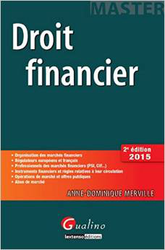
Complete reference: Merville, Anne-Dominique, Droit financier, 4ième éd., Gualino - Lextenso édition, 2018, 368 p.
____
________
Feb. 4, 2018
Translated Summaries : Isolated Articles

Sept. 11, 2017
Breaking news
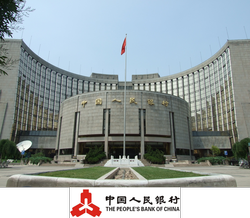
The nature of virtual currency remains uncertain. In any case, the object is very attractive, in particular because its nature, presented as "new", implies that its handling is not regulated.
This allows, in particular for individuals or start up, to issue "tokens" to offer them in exchange of funds, by the "initial coin offerings (ICOs)" technic, tokens acquired by investors, without being banking institutions, or borrowing money , nor issuing capital securities.
Operators demand that this behavior be recognized in its novelty and be recognized as being governed only by the contract and the general principles of loyalty, commitment and information, because what it is not prohibited is permitted while what is not regulated is freely organized by the parties who consent to it.
As media report, the Banking Regulator of China, has just decided otherwise. It has decided that the fundraising by individuals or companies by means of virtual currency will now be banned.
The question is whether other Regulatory Authorities could do the same.
Read below.
Nov. 16, 2016
Events : JoRC

Sept. 3, 2016
Breaking news

The Basel Committee on banking supervision issues regularly a monitoring report on the implementation of Basel III regulatory reforms.
In August 2016, the seventh issue was published by the Committee as to be taken into account for the upcoming G20 meeting: Implementation of Basel standards. A report to G20 Leaders on implementation of the Basel III regulatory reforms.
In this report, the Committee mesures how national systems gradually implement the prudential reforms they have informally elaborated in common.
All the power derived from the Basel System stems indeed from the fact that it is concentrated; however, it still has to face a 'hard law' issue, as it is necessary to implement the reforms within the national systems in identical terms and in a constrained timeframe.
The Committee indicates in its reports that some countries still face a number of issues regarding this implementation, whether these issues arise from the rules themselves or from the transposition period that the countries are given to implement them. Those same countries tend to justify themselves by saying that banks are to blame for these issues, since they report having trouble adjusting their information system as to satisfy the new requirements.
The Committee underlines the fact that this delay occurs in some countries whereas others are already compliant creates a situation of unfair 'jurisdiction' competition between them, which is all the more concerning since these national systems host international banks: "Delayed implementation may have implications for the level playing field, and puts unnecessary pressure on jurisdictions that have implemented the standards based on the agreed timelines. A concurrent implementation of global standards is all the more important, as many jurisdictions serve as hosts to internationally active banks.".
In order to improve an effective implementation of the whole system, the Committee proposed to implement instead a calculus method that would be less complex: "These proposals would constrain banks’ use of internal models and would reduce the complexity of the regulatory framework.".
____
A few general observations can be drawn from this very specific Basel III issue underlined in the aforementioned report:
- soft law needs at some point to get concrete (which is closely monitored since the rules do need to be implemented), otherwise it is not law at all;
- it is through implementation that the weight and the contours of common rules are actually being felt;
- this situation is a good reminder of the fact that competing jurisdictions are an actual thing and a issue to deal with;
- what is an argument based of complexity, or even impossibility, of the technical implementation of a requirement worth?
This last question is crucial. Those who impose the requirement may consider that the non-enforcement for technical reasons cannot be accepted!footnote-68. Here, however, maybe since it is not a formal requirement as this is all soft law, and since there is a good communication between the supervisor and the executing agent (who is, at the same time, the one that is subject to the requirement, the one who elaborated it and the one who proposes to review it as to make it less complex).
Cass. R. Sunstein's last book was entitled Simpler. French Conseil d’État (French administrative supreme court) conducts thorough work on the quality of laws and on their simplicity, both qualities that probably go hand in hand. The Basel Committee steps in the same directions...
June 24, 2016
Breaking news

The Autorité des Marchés Financiers (AMF- French Prudential Supervision Authority) set up a Scientific Advisory Board under the supervision of its president Gérard Rameix, who is also president of the AMF.
The Scientific Advisory Board chose ‘Financial education in the digital era’ as the theme of its annual conference, which was held on 20 June 2016 in partnership with Paris School of Economics.
The conference was opened by François Villeroy de Galhau, Governor of the Banque de France (France’s central bank). He stated that financial literacy “shall help everyone make informed decisions”. In this regard, financial literacy is a “factor for economic efficiency and social fairness”, which justifies involvement from public authorities- including, namely, the Banque de France. In partnership with both the Autorité de Contrôle Prudentiel et de Résolution (ACPR- French Prudential Supervision Authority) and the AMF, the Banque de France ought to be a “caring educator, but an attentive regulator”, as it is “imperative that financial literacy and Regulation should be taken forward jointly, as to allow for new technologies to develop, which would be understood by all and for the benefit of all”.
Three roundtables followed. The first roundtable aimed at assessing financial literacy trends and their impact on the financial behaviour of consumers and investors in Europe. The second session focused on the opportunities opened up by new technologies (upon which Fintechs, e.g., crowdfunding platforms, data aggregators and automated financial advice services are thriving) as regards financial behaviours. Lastly, the third panel discussion, which involved several French (AMF, Institut National de la Consommation- INC, French National Institute for Consumer Affairs) and European (European Commission) Regulators, draw conclusions from the first two roundtables and discussed on the issues that an increasingly digitalised financial education raises for Regulatory authorities.
Since this conference raises many crucial questions for Regulation, it is important to recall what has been said in the panel discussion on the role of Regulator with regards to financial education (I.) before sharing some thoughts on this matter of particular interest (II.).

June 21, 2016
Breaking news





